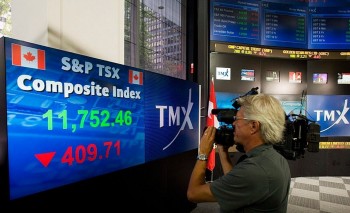Indian Stock Market Holidays 2025: Key Dates, Unique Features, and Tips
 What Time is the Opening and Closing of the Indian Stock Market? What Time is the Opening and Closing of the Indian Stock Market? |
 Full List of Indian Stock Market Holidays: Are Indian Market Closed or Opened Today? Full List of Indian Stock Market Holidays: Are Indian Market Closed or Opened Today? |
Overview: Indian Stock Market
The Indian stock market is one of the fastest-growing financial ecosystems globally, characterized by its scale, diversity, and dynamism. The two primary stock exchanges, the Bombay Stock Exchange (BSE) and the National Stock Exchange (NSE), collectively facilitate trading for millions of investors. The BSE, founded in 1875, is Asia’s oldest stock exchange, while the NSE, established in 1992, introduced electronic trading to India, revolutionizing market operations.
India's stock market is integral to the country’s economic development, reflecting its robust sectors, including technology, pharmaceuticals, finance, and agriculture. Benchmark indices like the BSE Sensex and NSE Nifty 50 serve as barometers for the market’s health and the broader economy. These indices track the top-performing companies across diverse sectors, providing a snapshot of economic trends.
The market operates under the supervision of the Securities and Exchange Board of India (SEBI), ensuring transparency and investor protection. Unique features such as high retail participation, volatility driven by macroeconomic and political developments, and a growing emphasis on technology and ESG investments make the Indian market a critical destination for global investors.
Understanding the Indian stock market’s holiday schedule, trading hours, and distinct characteristics is essential for both domestic and international participants to optimize their investment strategies.
 |
| Bombay Stock Exchange (BSE) |
Official Holidays for the Indian Stock Market in 2025
Here is a detailed breakdown of each holiday observed by the BSE and NSE in 2025. On these days, no trading occurs in equity, currency, or derivatives segments:
1. Republic Day - January 26, 2025
Republic Day marks the anniversary of the adoption of the Indian Constitution in 1950. It is a national holiday celebrated with parades, cultural programs, and patriotic fervor. The stock market remains closed to honor this significant event in Indian history. For investors, this holiday provides an opportunity to assess their portfolio performance as the new calendar year begins.
2. Holi - March 17, 2025
Holi, the festival of colors, celebrates the arrival of spring and the triumph of good over evil. It is one of India’s most vibrant festivals, observed with joyous celebrations across the country. The stock market closure on this day reflects the cultural significance of the festival, offering investors a break to realign their strategies for the final quarter of the fiscal year.
3. Mahavir Jayanti - April 7, 2025
Mahavir Jayanti commemorates the birth of Lord Mahavir, the 24th Tirthankara of Jainism. Observed as a day of peace and reflection, it is a public holiday across India. The Indian stock market halts trading, allowing participants to engage in spiritual and familial activities. This pause aligns with a broader slowdown in business activities across the country.
4. Good Friday - April 18, 2025
Good Friday, a Christian observance marking the crucifixion of Jesus Christ, is a public holiday in India. The stock market closure coincides with similar breaks in global financial centers, providing a synchronized pause for international investors. This holiday is often used by traders to review strategies for the upcoming fiscal year.
5. Id-ul-Fitr (Eid al-Fitr) - April 22, 2025
Eid al-Fitr celebrates the conclusion of Ramadan, a holy month of fasting in Islam. Marked by prayers, feasts, and charitable acts, it is a significant festival for the Muslim community. The Indian stock market observes this holiday to respect its cultural diversity, ensuring participants can celebrate without distractions.
6. Independence Day - August 15, 2025
Independence Day celebrates India’s liberation from British rule in 1947. It is a day of national pride, featuring flag-hoisting ceremonies, speeches, and parades. The stock market closure reflects the patriotic spirit of the day, providing an opportunity for investors to take a mid-year break and reflect on the nation’s economic progress.
7. Gandhi Jayanti - October 2, 2025
Gandhi Jayanti honors the birth anniversary of Mahatma Gandhi, the leader of India’s freedom struggle. Observed as a day of peace and nonviolence, it is a public holiday across India. The stock market closure offers a moment for participants to pause and reflect on Gandhi’s values of simplicity and sustainability, which increasingly align with modern ESG investing.
8. Diwali (Laxmi Pujan) - October 31, 2025
Diwali, the festival of lights, is one of India’s most celebrated festivals. Laxmi Pujan, performed during Diwali, seeks blessings for prosperity and wealth. The stock market is closed for regular trading but conducts a special one-hour “Muhurat Trading” session in the evening. This unique tradition symbolizes auspicious beginnings and holds cultural significance for traders and investors.
9. Christmas - December 25, 2025
Christmas celebrates the birth of Jesus Christ and is marked by festive decorations, feasts, and the exchange of gifts. The Indian stock market remains closed, aligning with global markets. This holiday provides a rare pause at the end of the year, allowing traders to review their annual performance and plan for the year ahead.
Trading Hours and Sessions of the Indian Stock Market
The Indian stock market operates under a standardized schedule:
-
Pre-Open Session: 9:00 AM - 9:15 AM IST
A preparatory period for placing and modifying orders before the market opens.
-
Normal Trading Session: 9:15 AM - 3:30 PM IST
The primary trading hours during which most transactions occur.
-
After-Hours Trading: 3:40 PM - 4:00 PM IST
A session for order matching and settlement.
The market is closed on weekends and public holidays.
Unique Features of the Indian Stock Market (400 Words)
-
Retail Investor Dominance
A large portion of trading volume comes from retail investors, making the market highly sensitive to sentiment and trends.
-
Volatility and Growth
High levels of volatility, driven by political events, monsoon outcomes, and global economic conditions, characterize the Indian market.
-
Global Connections
India attracts foreign portfolio investments, with its stock market increasingly integrated into global financial systems.
-
Sectoral Diversity
Key sectors include technology, pharmaceuticals, banking, and consumer goods, offering a broad range of investment opportunities.
-
ESG Focus
A growing emphasis on sustainable investing aligns with global trends, with several ESG-focused funds emerging in recent years.
-
Unique Trading Practices
Traditions like Muhurat Trading during Diwali reflect a blend of culture and finance.
 Can Foreigners Buy or Invest in the Indian Stock Market? Can Foreigners Buy or Invest in the Indian Stock Market? |
Advice and Tips for Navigating the Indian Stock Market
-
Plan for Holidays
Align your trading and investment strategies with market closures to avoid disruptions.
-
Monitor Economic Indicators
India’s market is highly influenced by GDP growth, inflation rates, and government policies.
-
Diversify Across Sectors
While banking and IT dominate, consider opportunities in pharmaceuticals, renewable energy, and infrastructure.
-
Leverage Volatility
Use volatility as an advantage, employing techniques like swing trading to maximize returns.
-
Stay Updated on Regulations
SEBI frequently updates guidelines; staying compliant ensures smooth trading.
Conclusion
Indian stock market, with its unique blend of cultural significance, economic growth, and global influence, offers tremendous opportunities for investors. By understanding the holiday schedule, trading hours, and market dynamics, participants can navigate this vibrant ecosystem effectively and strategically.
FAQs
1. When does the Indian stock market close in 2025 for holidays?
The market observes holidays such as Republic Day, Diwali, and Christmas. A detailed list is provided above.
2. What are the trading hours of the Indian stock market?
Normal trading occurs from 9:15 AM to 3:30 PM IST, with pre-market sessions starting at 9:00 AM IST.
3. Is the Indian stock market open on weekends?
No, the Indian stock market is closed on Saturdays and Sundays.
4. What makes the Indian stock market unique?
Its high retail participation, cultural influences like Muhurat Trading, and sectoral diversity make it distinct.
5. How can international investors access the Indian stock market?
Through Foreign Portfolio Investor (FPI) routes or global funds investing in Indian equities.
 U.S. Stock Market Holidays for 2025: Key Dates, Times U.S. Stock Market Holidays for 2025: Key Dates, Times Understanding the U.S. stock market holidays in 2025 can help you plan your trading strategies effectively. |
 Canadian Stock Market Holidays 2025: A Comprehensive Guide Canadian Stock Market Holidays 2025: A Comprehensive Guide The Canadian stock market, known for its dynamic environment and global influence, follows a specific holiday schedule each year. This article explores the official 2025 ... |
 Australian Stock Market Holidays 2025: Key Dates, Unique Features, and Tips Australian Stock Market Holidays 2025: Key Dates, Unique Features, and Tips The Australian stock market is a critical hub for the Asia-Pacific region, reflecting a mix of global and local influences. This article outlines the official ... |

























